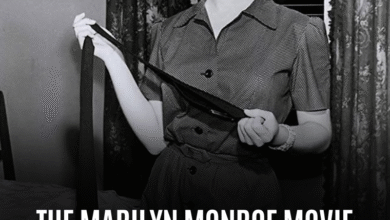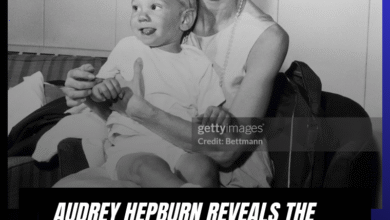Jake Gyllenhaal’s Iago Takes on New Meaning in Denzel Washington’s PTSD-Focused Othello Revival
OPINION: This article may contain commentary which reflects the author's opinion.
The Broadway revival of Othello, starring Denzel Washington and Jake Gyllenhaal, has opened at the Barrymore Theatre to considerable attention. Directed by Tony Award-winner Kenny Leon, this production, which runs from March 23 to June 8, 2025, has injected new life into William Shakespeare’s timeless tragedy, providing a modern military context that resonates deeply with contemporary audiences. Set against the backdrop of war and post-traumatic stress disorder (PTSD), the adaptation explores the psychological toll of conflict, turning Othello’s famous jealousy into a more nuanced story of mental health and the devastating effects of warfare.
A Modern Take on a Timeless Tragedy
Washington, known for his commanding roles in films like Glory and Training Day, plays Othello, the noble Moor of Venice and a battle-worn general. Gyllenhaal, whose versatility shines in roles from Brokeback Mountain to Nightcrawler, portrays Iago, Othello’s ambitious and manipulative lieutenant. This modern adaptation places both characters within the context of military service and PTSD, which is a powerful reinterpretation of the original text. As noted by Playbill, “In this version of Shakespeare’s play, Othello and Iago are two soldiers with PTSD,” highlighting the production’s contemporary approach to the psychological toll of war.
The phrase “It’s the Wars Now” is thought to reference Shakespeare’s original line from Act III, Scene 3, where Othello laments, “Farewell the plumed troop and the big wars / That make ambition virtue!” This modern twist shifts the focus to the ongoing emotional and mental challenges soldiers face in today’s conflicts, making the play strikingly relevant to current societal concerns about veterans’ mental health.
Bringing the Drama to Life: Washington and Gyllenhaal’s Performances
Washington’s approach to Othello emphasizes a grounded, naturalistic portrayal, rejecting traditional “Shakespearean acting” as he explained in a Vogue interview: “No pinkies up, no ‘Shakespearean acting,’ I don’t even know what that is.” This grounded approach makes his portrayal accessible to contemporary audiences, shifting away from the often theatrical stylizations of classic productions. His Othello is a man burdened by the weight of war and struggling with the psychological scars that come with it. This interpretation highlights the emotional complexity of Othello’s character, grounding his jealousy and eventual rage in trauma rather than merely portraying him as a one-dimensional tragic hero.
Gyllenhaal’s Iago is similarly modernized, with the actor emphasizing the bond between Iago and Othello as a foundation for Iago’s manipulation. “The only reason he can manipulate Othello that way is that they have a bond,” Gyllenhaal noted. This dynamic is essential to understanding the complexity of Iago’s jealousy and ambition within the context of military camaraderie. By exploring their relationship through the lens of shared military experiences, Gyllenhaal’s Iago feels more human and relatable, intensifying the sense of betrayal and moral ambiguity that makes the play so powerful.
Relevance to Contemporary Audiences
In today’s world, where conversations around PTSD, mental health, and the struggles faced by military personnel are increasingly in the spotlight, this modern take on Othello feels particularly timely. The production focuses on the psychological ramifications of war, turning Othello’s famous jealousy into a story about trauma, emotional vulnerability, and the destructive impact of unresolved psychological issues. As Washington stated in a CBS News interview, “It’s the most excited I’ve been this century. Seriously. I haven’t been this excited about anything I’ve done as I am about this.” His enthusiasm reflects the personal significance of the project, which addresses contemporary issues with an urgency and authenticity that resonates with today’s audiences.
Critical and Commercial Reception
Commercially, the production has been a resounding success, breaking records with a jaw-dropping $2.8 million in box office earnings during a single week (according to CBS News). The demand for tickets has been so high that some orchestra tickets have been priced at up to $921, indicating a strong desire for contemporary adaptations of classic works that tackle pressing issues. However, critical reception has been more mixed. The Washington Post raised concerns about the execution of the concept, suggesting that while the modern twist is ambitious, the artistic execution of the production may not fully meet its potential. Despite this, many critics and audiences have praised the play for its timely focus on PTSD and the psychological toll of war, which has become an increasingly urgent issue in contemporary discourse.
Artistic Influence and Legacy
Kenny Leon’s direction, known for updating classic works with contemporary sensibilities, breathes new life into Shakespeare’s text. Having previously worked with Washington on Fences and A Raisin in the Sun, Leon brings his signature touch to this production, ensuring it speaks to modern concerns while preserving the timeless power of the original play. The cast, including Molly Osborne as Desdemona and Andrew Burnap as Cassio, plays a crucial role in supporting this modernized vision, bringing Shakespeare’s themes of jealousy, betrayal, and honor into a new context.
The production also collaborates with Yondr, a company known for its phone-free experiences, creating an immersive environment where audiences can engage fully with the performance without distraction. This commitment to creating a focused, immersive experience aligns with the production’s deep exploration of psychological themes, ensuring that the audience is fully present in this emotionally charged environment.
Conclusion
Denzel Washington and Jake Gyllenhaal’s Broadway revival of Othello is a bold reimagining of Shakespeare’s classic tragedy, rooted in the modern struggles of PTSD and the psychological effects of war. Directed by Kenny Leon, the production seamlessly updates the play, making it deeply relevant to contemporary audiences. Through powerful performances and a thoughtful exploration of mental health, this Othello offers a poignant and timely commentary on the emotional cost of conflict. While its critical reception is varied, the production’s success at the box office and its resonance with audiences show that the themes of Shakespeare’s work continue to be relevant and deeply impactful in today’s world.



